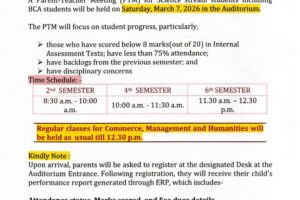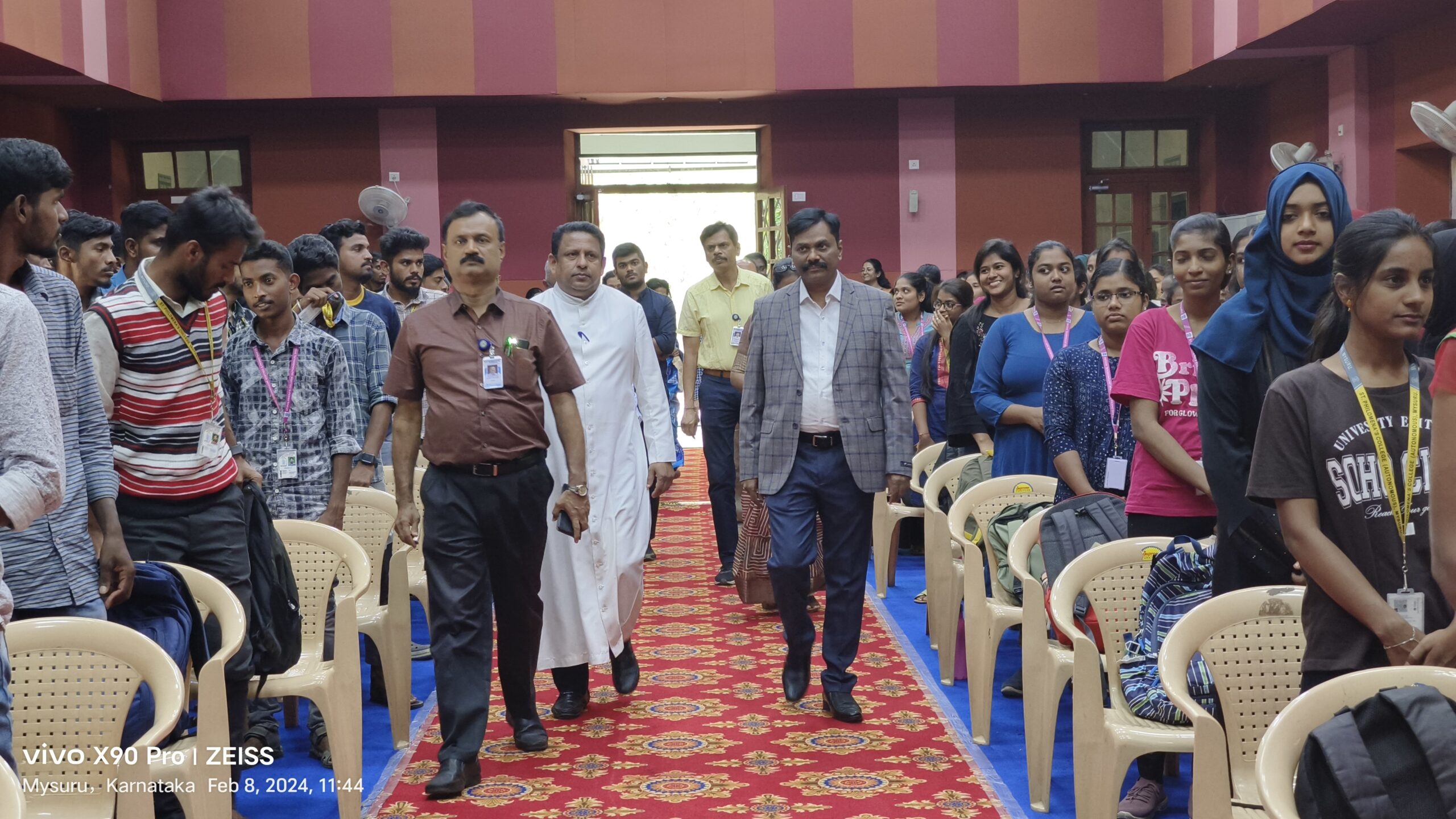
Inauguration of Intellectual Property Rights, Innovation, Incubation and Startup Cell (IPRIIS)
St. Philomena’s College (Autonomous), Mysore
Chief guest: Dr. Hanumanthachar Joshi
Date: 8th February Time: 11.30 AM
Venue: UG Auditorim
St. Philomena’s College, Mysore
Intellectual property rights serve as the cornerstone for safeguarding public interest, fostering innovation, and promoting entrepreneurship. Dr. Joshi’s comprehensive address covered various dimensions of IPR, including copyright, patents, trademarks, industrial design rights, and digital assets.
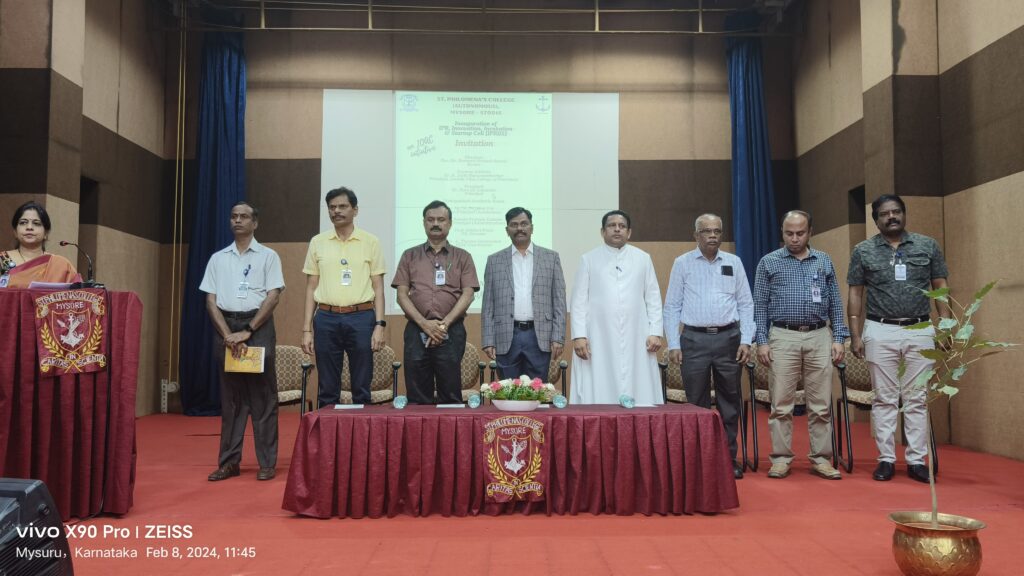
Dr. K. Hanumanthachar Joshi led a session titled “PROTECTING INNOVATIONS: ROLE OF PATENT AND DESIGN.” The session was led by Sir, who provided insights into the intricate relationship between patents and their importance in business and innovation. During this session, program objectives such as
- Professional development
- Stimulate ideas regarding the patent, designs, trademark was elaborated
- Catch up with new pharmacy trends in complementary with artificial intelligence
- Networking with intellectual property
- Refreshing the clinical knowledge
Dr. Joshi began by providing a thorough overview of patents, including their definition, types, legal framework, role in the patent system, government grants, patent cooperation, treaties, significance of patent documents, comprehensive patent design act, effects of the act, property rights related to trade, a portion of WTO agreements, and innovative trends like blending silver ions in water and using silver threads in socks to protect people from harmful diseases. Synthesis of drug systems involving related heterocyclic systems and their derivatives. artificial intelligence and the medical field together.
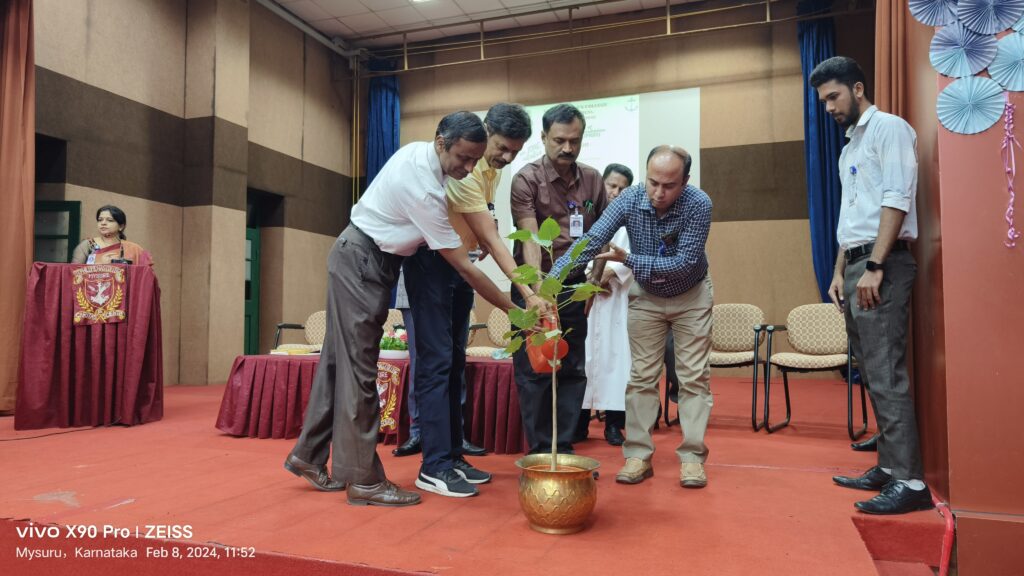
The patent application process (both Indian and international) was also covered by Sir, who outlined the necessary steps and prerequisites for obtaining patent protection for an invention. Jurisdictions for the process, requirements for granting, and filing of patent applications. All things considered, the discussion was a valuable addition to the national and worldwide patent system, which eventually boosts our country’s GDP. In the end, product development in the nation can promote an expansion of the labor market. Proactive steps must also be taken to protect intellectual property. Students’ comprehension of the many tasks carried out by the IPR cell, such as copyright protection and patent registration, was improved by this keynote.
Additionally, Dr. Joshi stressed the importance of product development, which entails planning, building, and releasing a new product onto the market. This takes place at several phases, from conception to launch.
Dr. Joshi in his talk also concentrated on the below concepts in a lucid way
- Idea generation
- Screening ideas
- Development and testing
- Business analysis
- Prototype development
- Design and development
- Marketing strategies
- Commercialization
- Product launching
Dr. Joshi’s presentation impressed the audience with its expertise, clarity, and connection to their interests. By taking into account real-world situations, he was able to successfully and more easily understandably convey difficult legal matters. The important role that an IPR cell plays in promoting an innovative culture and organizing the protection of intellectual property was the main focus of the workshop. providing the interested parties with useful information and techniques for successfully reducing the patenting procedure
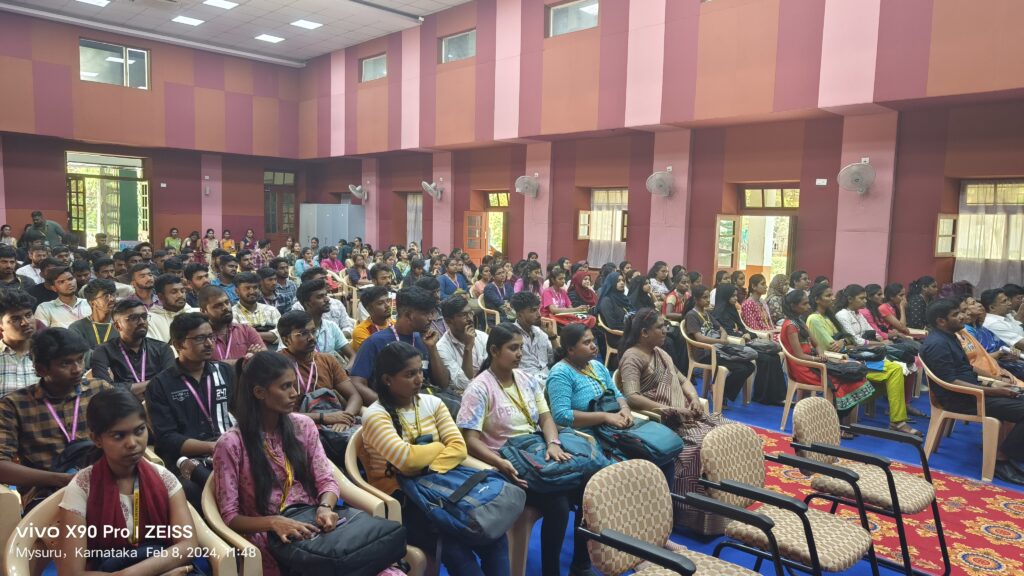
The audience interacted with questions and sought clarification on many topics of patent law, thereby actively participating in his presentation. Dr. Joshi talked about the value of publishing and research. He also stressed the value of publishing in scientific publications as opposed to cloned journals, particularly UGC-CARE journals. Rather than publishing the concept, he placed more emphasis on the larger-scale commercialization of products. His views were supported by stimulating conversations that created a lively learning atmosphere.
Attendees gained valuable insights into leveraging intellectual property for branding, marketing, and protecting assets that confer a competitive advantage. Dr. Joshi emphasized the significance of converting intellectual capital into financially viable assets, thereby driving innovation and product commercialization.
In conclusion, the IPRIIS cell was successfully established with the goal of advancing product development and commercialization, which can improve the institution’s future vision and, as a result, propel the country’s economic growth and improvement in the global rankings. The session facilitated meaningful dialogue and collaboration among participants, fostering a deeper understanding of the complexities and opportunities surrounding intellectual property.

